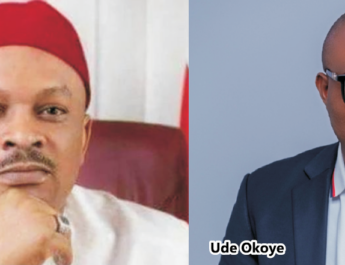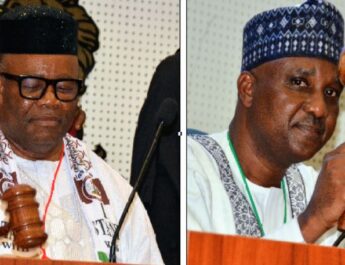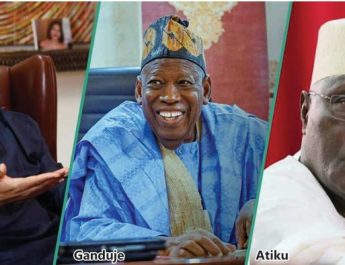To ensure good governance and accountability on the part of Nigerian leaders, the youths have been admonished to adequately participate in the nation’s electoral process by voting and be voted for in subsequent elections at all levels going forward
By Dafe Favour
It is an irony that the typical Nigerian youths, who have shown resilience, discipline and conscientiousness in their chosen fields of endeavour even outside the shores of the country were once described as lazy by the late immediate past President Muhammadu Buhari.
Their denigration by failed past and present leaders have led to what many described as election apathy on the part of the Nation’s younger generation to the extent that on elections day, the Nigerian youths prefer to play football on the streets or chill off in bars and lounges or even in the discreet corners of their residences
But in order to encourage the youths to galvanize for a positive change of leadership, especially of failed and failing governments in Nigeria and Africa, the Renevlyn Development Initiative (RDI) organized a Webinar to sensitize them on the proper way of ensuring change by participating in the electoral process and exercising the rights to vote and be voted for at elections.
Speaking during the virtual meeting with the theme: Nigerian Youth And Apathy To Elections, Dominion Amupitan, who introduced the subject matter of apathy towards politics and electoral practices on the part of the Nigerian youth to the participants, encouraged them to henceforth strive robustly participate in governance and elections in spite of the failures of political office holders.
She frowned on the situation in which Nigerian politicians recruit the youths as thugs to incite violence and destabilize elections by stuffing and stealing electoral boxes and killing candidates’ opponents or rivals in other political parties, noting that their actions smack of ignorance on the part of the youths who allow themselves to be used for electoral violence since the children of most politicians live outside the country.
In his intervention, Executive Director of RDI, Philip Jakpor, pointed out that continued non-participation of the Nigerian youth in governance and apathy to elections remain a total disservice to the nation’s democracy, adding that to make things worse, most Nigerian youths prefer to japa, rather than stay at home and contribute to good governance in the country.
Citing Ukraine as an example for worthy of emulation, he stated that the Ukrainian youths participated in defending their country in the war with Russia, as well as how blacks in United States of America (USA) and the United Kingdom (UK) fought racism over the years to attain the level of inclusivity in those societies.
He also cited the recent Lagos and Rivers states local government election on June 12, 2025 and August 30, 2025 as case studies and how the polls witnessed low turnout, as the youths did not actively perform their civic responsibilities in the electoral processes, adding that in other climes, youths and other citizens not only openly campaign for candidates of their choice, but also go ahead to actually vote their candidates.
Also speaking, a graduate of Law from the University of Benin, Unekwuojo Sule, a political analyst, strategy communicator and disability rights advocate, Betram Ubaka and Executive Director of Socio-Economic and Development Centre (SERDEC), Tijani Abdulkareem, harped on the need the for encouraging active youth participation in governance and election following the second edition of the Youth Resilience series organized by RDI.
Ubaka, who spoke passionately on civic responsibility of the younger generation to entrench good governance, highlighted the stance of the Nigerian Youth towards political participation and also encouraged the masses to be aware of their rights and envisaged contributions to salvaging the future of the country.
On his part, Abdulkareem, who stressed the importance of the youths in taking ownership their political future as they remain the catalysts that can drive growth and development, maintained that elections remain one of the most effective ways of pushing for youth inclusion in governance, while citing the Not Too Young To Run bill that was passed into law in 2018 under the late former President Buhari administration.
He also highlighted the issues hindering youth participation as monetization of politics thereby promoting the Godfather syndrome, toxic electoral environment for active engagement and show aspirations for political offices, shun being used as thugs to disrupt elections and lack of transparency in democratic institutions.
During the Webinar, it was further emphasized that the youths need to show resilience and show bravery by carrying their cross in their effort to replace the old order of governance from the corrupt politicians.
They were also charged to start showing more interest in political matters even amid deep distrust that the youths already have towards successive governments and the current administration and make efforts to overhaul all governmental positions and offices to create a youth-led electoral system that will engender accountable leadership and responsible governance.




